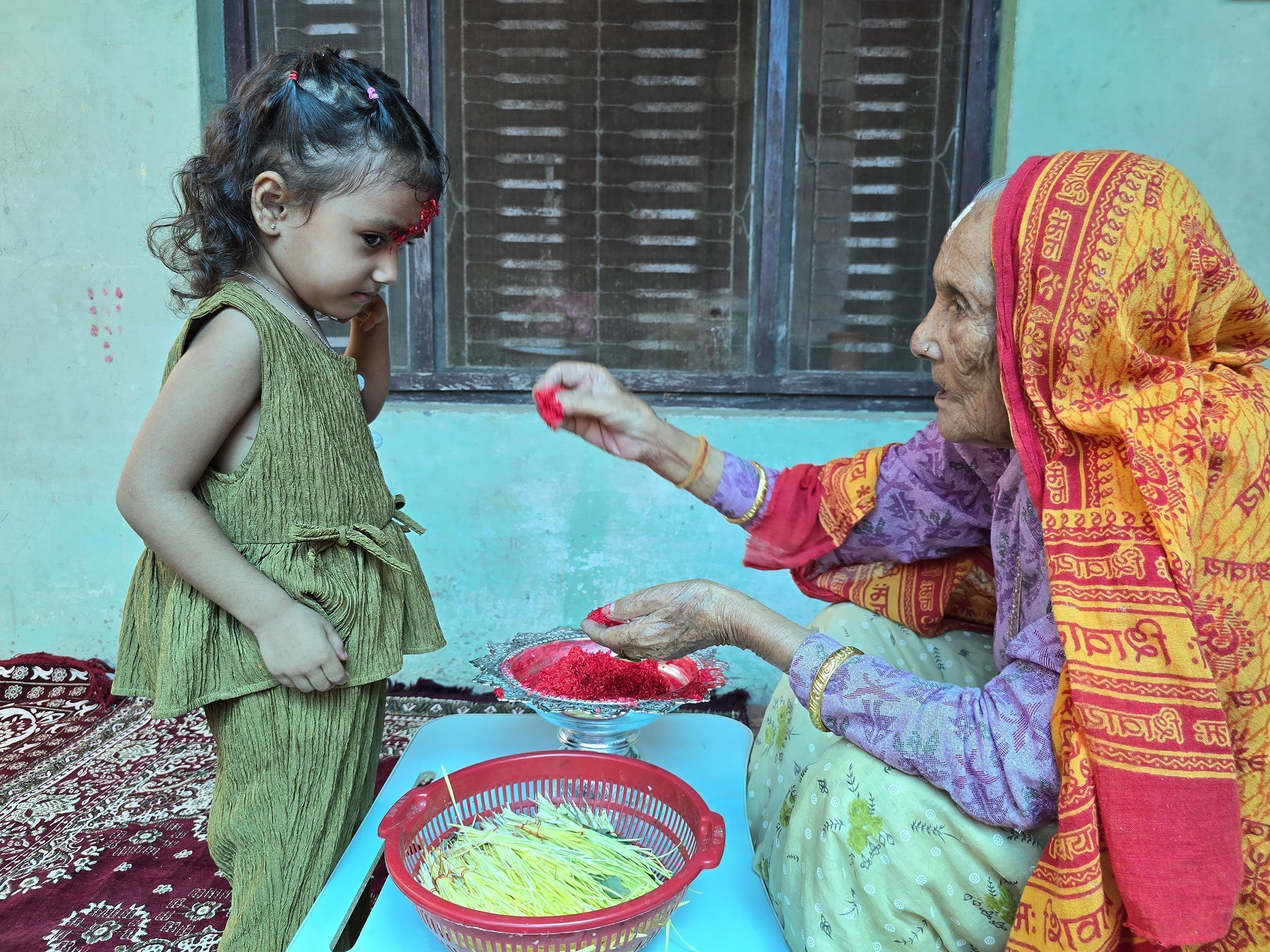Tika and jamara offerings continue on Papankusha Ekadashi

Kathmandu, October 13 — The tradition of receiving the tika and jamara (barley sprouts) as offerings from elders continues today on the day of Papankusha Ekadashi, the 11th day of waxing moon in the month of Ashwin.
From Ashwin Shukla Pratipada (1st day of waxing moon) to Nawami (9th day of waxing moon), the worship of Nawadurga was performed, and the process of applying tika and jamara, which began on Bijaya Dashami (yesterday), continues till Kogajrat Purnima (full moon day). Relatives living far away often return home to receive blessings during the period.
Various scriptures state that observing the Ekadashi fast cleanses all sins. It is mentioned that one should worship Lord Lakshmi Narayan, known as Padmanabh, on this day. According to Pandit Bal Mukunda Devkota, as long as one does not observe Papankusha Ekadashi, sins will remain in their body. This Ekadashi is believed to grant access to heaven, liberation, good health, beautiful spouses, as well as wealth and food.
The merit of observing Ekadashi cannot be matched even by visiting pilgrimage sites like Ganga, Gaya, Kashi, Kurukshetra, and Pushkar. Observing this fast and vigil leads one to easily attain Lord Bishnu’s abode. Not observing it leaves one with lingering sins, ultimately leading to hell. In this age of Kali, it is deemed appropriate to observe this fast to make the rare opportunity accessible.
By properly observing this Ekadashi fast, it is believed that one can liberate their ancestors on both maternal and paternal sides, as well as past relatives. Taking this fast in childhood, youth, and old age allows even sinful individuals to attain good fortune rather than downfall.
The observance of Ashwin Shukla Paksha Papankusha Ekadashi (11th day of waxing moon in the month of Ashwin) leads one to the realm of Harilok (god's world) and frees them from all sins. It is also believed that donating gold, sesame, land, cows, food, water, umbrellas, and shoes ensures that one does not have to meet Yama, the god of death.










Leave Comment